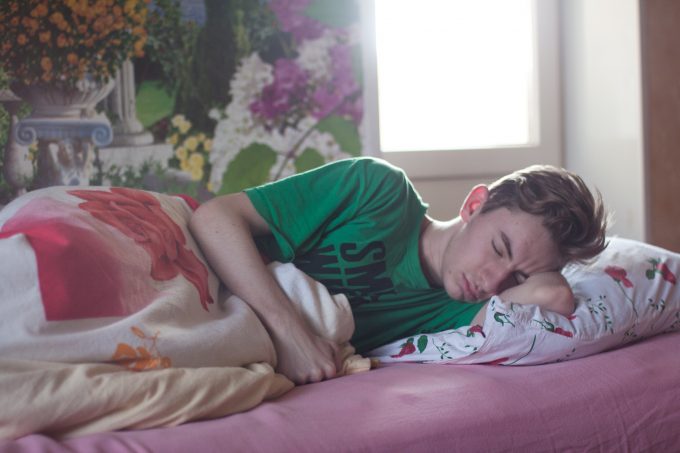Sleep In The Era Of COVID-19

If there was one prescription I could write for all my patients, family and friends during this COVID-19 pandemic, it would be for adequate sleep.
I would prescribe sleep regardless of the persons’ diagnosis, treatment plan, or emotional response to the pandemic. Sleep is the one thing that is universally beneficial to maintain adequate health, coping skills, and ability to fight off infections, including COVID-19.
In the past few months due to the pandemic, we have seen dramatic alterations in lifestyle and use of technology. Children are logging in daily to Zoom or Google classroom for their education. Parents are constantly on standby for each child acting in turn as their tech support, assistant teacher, personal chef, and housekeeper. It is no surprise that at night the term “Netflix and chill” has become a family activity to unwind and relax late into the night.
This novel media-induced sleep disorder is more commonly termed: Delayed Sleep Wake Phase Disorder (DSP/DPSD). DSP is a sleep pattern that is “delayed” by two or more hours and can affect 7%-16% of the general population. It can be associated with sleep disorders, medical conditions, mental health disorders, substance abuse, or medications.
At this time in history, there are additional stressors related to the pandemic including anxiety/grief, loss of routine and structure to our lives, social isolation within our home, and increased use of technology throughout the day. In 2011, the National Sleep Foundation reported that 9 out of 10 Americans use a technological device before bedtime. Several studies have found that teens who used technology before bedtime have difficulties falling asleep, have poorer quality of sleep and sleep later the next day.
What is the potential impact of poor sleep?
Chronic sleep restriction and disruption can have a negative impact on your brain and body (see below).
Brain effects of poor sleep
Decreased attention and concentration
Decreased emotional regulation and coping
Decreased memory and learning
Difficulties getting along with others
Depressed/anxious mood or lack of motivation
Physical effects of poor sleep
Increased risk of heart disease
Increased risk of high blood pressure
Increased risk of diabetes
Increased risk of obesity
REDUCED IMMUNE SYSTEM
How much sleep do you need and how do I prescribe sleep to my patients?
Dosage: amount of sleep recommended for youth that age to be healthy
Administration: when to start sleep to be able to obtain correct amount of sleep based on age
| Age | Daily Sleep = Dosage | Bedtime to wake at 8:00 AM (for a 9:00 AM Zoom ) |
| 3-5 years | 10-13 hours (including naps) | 7:00 PM-10:00 PM |
| 6-12 years | 9-12 hours | 8:00 PM-11:00 PM |
| 13-18 years | 8-10 hours | 10:00 PM- 12:00 AM |
| Adults | 7-9 hours | 11:00 PM-1:00 AM |
*American Academy of Sleep Medicine (AASM) treatment recommendations
Many people reading the bedtimes listed above may laugh or scoff at the times listed. It is not uncommon for my 6-year-old patients to be going to sleep at one or two in the morning and some of the teenagers going to sleep at dawn. Some days I cannot recall if it is Monday or “Tick toc Tuesday”.
How do we as a tired collective society motivate to make lifestyle changes knowing that the finish line to this pandemic is nowhere in sight?
I recommend that we return to fundamentals of healthy living: eating healthy meals, exercising, family time, and getting enough sleep. While there are many factors that influence our access to these things, there is no such barrier to sleep. Sleep represents a simple, modifiable change that can support healthy growth and development in youth and help prevent future negative health outcomes in adults. More importantly, sleep is one thing that everyone, regardless of age, ethnicity, health, or socioeconomic status can do to help support their immune system and protect themselves against infections like COVID-19.
So to stay safe and healthy, wear your mask and get enough sleep!
Blog written by Georgina Garcia, MD
References and for more information on healthy sleep:
https://www.nhlbi.nih.gov/health-topics/sleep-deprivation-and-deficiency
https://www.thelancet.com/journals/lanchi/article/PIIS2352-4642(20)30131-0/fulltext
https://www.ncbi.nlm.nih.gov/pmc/articles/PMC5026973/pdf/nihms782845.pdf
https://www.ncbi.nlm.nih.gov/pmc/articles/PMC3836340/pdf/jcsm.9.12.1291.pdf
https://www.ncbi.nlm.nih.gov/pmc/articles/PMC5669315/pdf/10.1177_2333794X17736972.pdf
View All Blog Stories